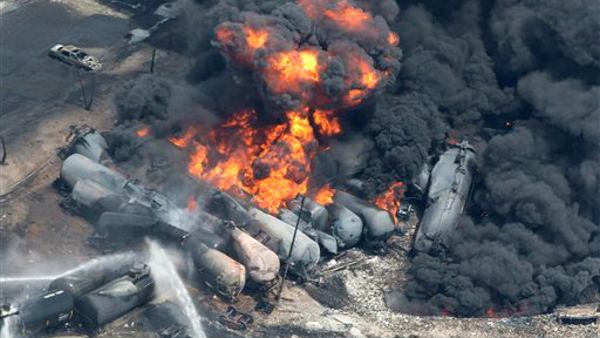There is huge potential for different communities in the Bay Area, the West Coast, and the First Nations to coordinate their ongoing disruption of the supply chain of the carbon economy.
Viewpoint Magazine has released their fourth issue, and I am extremely pleased to see a section dedicated to essays on logistical infrastructure and their position as a site of struggle. In general, I have been quite happy to see that more and more Marxist theorists are talking about the central role that logistics plays in the global capitalist system, because this type of analysis is highly relevant to my own focus on the energy sector and the struggles blossoming around the carbon economy and climate change.
I would like to draw attention to the following passage about the way that the colonial supply chains of the Atlantic Ocean mobilized different, previous disparate populations to mobilize with one another against the military-capitalist formations of the era. From Deborah Cowen’s excellent article “Disrupting Distribution: Subversion, the Social Factory, and the ‘State’ of Supply Chains”:
There is precedent for the contemporary power of disruption across vastly uneven imperial networks. Strikes, blockades, and occupations clearly all have long histories. In their prescient engagement with the “many-headed hydra” of the early Atlantic, Peter Linebaugh and Marcus Rediker investigate the geographies of exploitation, dispossession, and circulation that not only made imperial rule possible but which also brought disparate groups into relation – sometimes intimately and sometimes instrumentally. They describe the unlikely ways in which these imperial cartographies also provided a skeleton for the emergence of a surprising flesh of connections across vast spatial networks. Precisely because the organized violence of empire threw spatially dispersed social orders into heterogeneous relations of rule – through exploitation, slavery, incarceration, and colonization, for instance – it also brought oppressed peoples into relation differently. Without guarantee or even intentionality, these relations could at times produce creative solidarities. “Sailors, pilots, felons, lovers, translators, musicians, mobile workers of all kinds made new and unexpected connections,” they write, “which variously appeared to be accidental, contingent, transient, even miraculous.” Connections forged through the violent infrastructures of relations of rule may become the connective tissues of alternative futurities, when occupied differently.
What is striking to me is that it is precisely this process of “the emergence of a surprising flesh of connections across vast spacial networks” that I believe is being built through struggles around ecology and climate on the West Coast. In particular, it seems to me that the recent and growing influx of oil into and/or through West Coast communities—courtesy of new extractive technologies like hydraulic fracturing—is mobilizing new constituencies, while radicalizing existing political formations.
One striking example of new constituencies being mobilized is the case of Pittsburg, located in the north-eastern Bay Area. Pittsburg, and industrial town dominated by working class people of color, was recently engulfed in a political upheaval against a proposed oil storage terminal that would have been located right next to residential areas. The terminal would have stored around 200,000 barrels of oil a day, using trains to transport the oil in and out to the five local refineries. After many protests, marches, and packed city council meetings, it seems that the project has been stalled indefinitely—and throwing into question the economics of the expansion strategies of the oil refineries that the oil terminal would have stored oil for.
 Meanwhile, in neighboring Richmond—another town dominated by working class people of color—the issue of crude-by-rail has added yet another grievance to an already long list of complaints that locals have against the oil industry. Local opposition to Chevron’s dominance of the city’s political infrastructure, which is facilitated by the central role that the Chevron refinery has in the city’s economy, has resulted in escalating contestation of political power on the city council level and the seizure of the mayor’s seat in 2006 and several council seats in 2010 by the Richmond Progressive Alliance (RPA). But with the oil boom and the new influx of oil into Richmond, resistance to carbon infrastructure is growing and expanding; in addition to a blockade of the refinery in the summer of 2013, there is now mobilization against crude-by-rail as well, and direct actions against the railways.
Meanwhile, in neighboring Richmond—another town dominated by working class people of color—the issue of crude-by-rail has added yet another grievance to an already long list of complaints that locals have against the oil industry. Local opposition to Chevron’s dominance of the city’s political infrastructure, which is facilitated by the central role that the Chevron refinery has in the city’s economy, has resulted in escalating contestation of political power on the city council level and the seizure of the mayor’s seat in 2006 and several council seats in 2010 by the Richmond Progressive Alliance (RPA). But with the oil boom and the new influx of oil into Richmond, resistance to carbon infrastructure is growing and expanding; in addition to a blockade of the refinery in the summer of 2013, there is now mobilization against crude-by-rail as well, and direct actions against the railways.
Similar actions against the railways have been taking place in Seattle, with an attempted blockade in late July, a more successful blockade in early September, and then a mass blockade action during Seattle’s solidarity event with the People’s Climate March. Portland activists have also engaged in blockade tactics, with two different blockades taking place in September.
What is somewhat ironic is that the issue of crude-by-rail only became an issue due to the lack of pipeline infrastructure in the country—a result that is partially attributable to the politically controversial nature of pipelines and the uproar that projects like Keystone XL have caused across the environmental community. Thus, the industry turned to shipping oil out of extraction hotspots like the Bakken (in North Dakota) by using the railroads—and as a result, drastically increasing the number of train derailments and causing numerous disasters, including one that devastated a small rural community in Quebec that saw 47 people killed and the downtown area completely destroyed.
What’s really interesting is that despite the immediate danger of the oil trains being the primary initial reason for mobilization, it seems that plenty of the local campaigns are starting to explicitly couch their resistance in terms of not just opposing an immediately dangerous project, but in terms of being a way to disrupt the carbon economy and resist climate change. Portland Rising Tide, the group in the Portland area that engaged in train blockades, argue this by asking, “even if we could make the trains completely safe from derailments and explosions…can we ever consider them safe if each one contains approximately 327 metric tons of climate destroying CO2?” Thus, the blockading of oil trains becomes not just a strategy to protect one’s community from a potentially explosive accident, it also becomes a means of attacking the supply chains of the carbon economy, and empower the individual to have an impact on the global marketplace.
Given the geographical spread of the railways, and the growing resistance against crude-by-rail across the West Coast, it should already be easy to envision a strategy to coordinate blockades across these areas and maximize the effectiveness of individual blockades. Imagine if the people in Seattle, Portland, and the Bay Area coordinated efforts to track and blockade one train as it came down from Canada to the refineries in the northern Bay Area; as well as the potential for this kind of coordination to draw in the communities that lie between the major cities (i.e. Sacramento, Davis, and rural towns in northern California, Oregon, and Washington). Such a mobilization would strongly reflect the dynamics that Cowen describes, in how the infrastructure of empire creates the possibilities for unexpected mobilization and solidarity between geographically separated populations.
What is really exciting to me, however, is the potential that collaboration along the supply chains of the carbon economy can connect relatively moderate environmentalists in the United States with the truly radical and militant struggles currently taking place in Canada against fossil-fuel extraction, with the people of the First Nations at the vanguard. Mi’kmaq Warriors torched the vehicles of the Royal Canadian Mounted Police (RCMP) in October 2013 during an anti-fracking blockade; and in mid-October 2014, Ts’ka7 Warriors of the Secwepemc tribe burned down a company access bridge that was leading to a proposed metal mine. And even aside from these more militant acts, indigenous people regularly engage in blockades and occupations to resist the ongoing colonization of their lands by state and capital.
Understandably, the Canadian government has been more than a little freaked out about all this, and has carried out “risk assessments” alongside industry and military experts to gauge the risk that native insurgents pose to economic and political stability. As this excellent article points out, a couple of the assessment’s conclusions are highly noteworthy: first, that there is huge potential for coordinated action to create massive disruptions, given that there are simply not enough police and military resources to deal with multiple actions happening in different areas; and second, that solidarity between native and settler populations are growing the movement.
Those of us in the West Coast should pay heed to the Canadian government’s analysis, and recognize the huge potential there is in not just linking up resistance movements across the West Coast, but in linking West Coast movements with indigenous radicals in Canada and coordinating attacks, blockades, and general direct action against the carbon economy. Such a coordinated movement has enormous scope for creating a serious threat to state and capital, and more importantly, in drawing previously scattered and isolated communities in communication with one another—a trend that will lay the groundwork not just for resistance, but for restructuring, for creating the networks that will be necessary to build an alternative political economy. On this note, I’ll conclude by returning to the end of the quote from Cowen’s article:
Connections forged through the violent infrastructures of relations of rule may become the connective tissues of alternative futurities, when occupied differently.



Yes! Portland Rising Tide has been coordinating oil terminal resistance with folks in Washington, and it would be rad for Bay Area folks to plug in! Anyone who cares about KXL should care just as much about crude by rail shipments, and we should all care about stopping extraction and shipment at all levels.
Here’s a piece I did a few months back about the badass blockade of the KXL in South Dakota: http://fuelingdissent.org/2014/04/15/rosebud-sioux-tribe-spirit-camp/
LikeLike
Pingback: Violence in Capitalism’s Ocean-Based Logistics | Jnana Yuddha
Pingback: The Baja California farm worker strike arrives in the Bay Area, California | Jnana Yuddha
Pingback: Tuesday Interesting Links | Jnana Yuddha